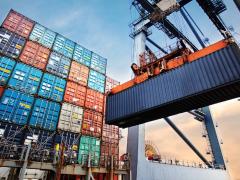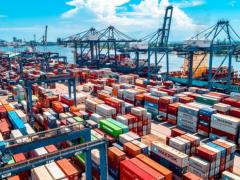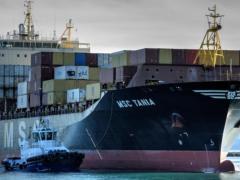Women are no longer just participants in the freight industry – they are reshaping its future. Breaking barriers and challenging norms, they are steadily transforming an industry long seen as male-dominated, proving that leadership, innovation and resilience know no gender. “When I started working in the port space in the early 2000s, there were very few women in key positions,” says Jennifer Finnigan, partner and head of competition law at Shepstone & Wylie Attorneys. “Today, women are far more represented, especially at senior level.” Trailblazers like Nosipho Damasane, who made history as CEO of the Richards Bay Coal Terminal (RBCT), have paved the way for a new generation of female leaders. Today, the freight and logistics sector boasts powerful figures such as Mpumi Madisa, CEO of Bidvest, and Michelle Phillips, Transnet Group CEO – women who continue to break ceilings and inspire others to follow. “The freight industry has historically been a male- dominated space. While women are increasingly represented across the sector, there is still plenty of room for improvement,” says Finnigan. “Particularly in traditional maritime roles – such as ship and aircraft pilots, including helicopter pilots, master mariners and ship’s captains – women remain vastly underrepresented.” This underrepresentation was highlighted recently in media coverage focusing on women working on tug crews, underscoring the fact that women remain scarce in traditional maritime roles. Gender equality is a core focus at Shepstone & Wylie. Currently, women make up 54% of the firm’s professional team, reflecting a strong commitment to balanced representation. “Our goal is not just to meet numbers, but to foster an inclusive culture where women can thrive and lead across all areas of the business,” says Finnigan. “True equality doesn’t mean everyone has to be the same; it recognises and values the different perspectives, which can translate into more effective problem solving and innovation. Women entering sectors where they have historically been underrepresented still have to break down the barriers resulting from long-standing perceptions.” Finnigan believes one of the key strengths women bring to the shipping industry is their collaborative approach to leadership. “Women tend to prioritise collective problem-solving and teamwork, which can be incredibly effective in a complex, fast-moving environment like freight,” she says. “Gone are the days when the shipping or maritime world was exclusively male. Today, young women lawyers are well represented in our international trade and transport practice, and many of our clients in key logistics businesses are women.” LV
Fostering an inclusive culture
Comments | 0












